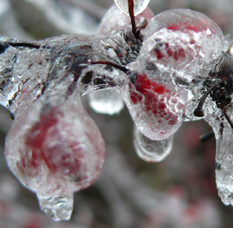Winter 2012
Table of Contents - Vol. VIII, No. 4
Poetry Translations Fiction Non-fiction Reviews
Dan Cuddy
Margaret S. Mullins,
Family Constellations. ISBN: 978-1622290291. Finishing Line Press, 2012, $14.00.
Finishing Line Press out of Georgetown Kentucky has published some excellent poets such as Virginia Crawford and Leslie F. Miller. Now Margaret S. Mullins has been added to the list. Her book Family Constellation is a book inspired by the people in her family, the individuals, but she writes of them as if they are members of the readers own family. Ms. Mullins has the knack of transforming the particular into an archetype with which we can all identify. We are not reading about odd interesting specimens of society; we are reading about ourselves, our families that aren’t so different from hers.
Initially my favorite poem in the book was “At 94 and 96”. It is about two elderly sisters, who go out in the rain, take their shoes off and “are six and four again, / laughing in the dark, splashing bare feet/ in the paradise of conscious childhood.” What struck me was how this poem embodied innocent joy. The scene is set so artfully with telling details:
Tonight, after sausage and Scrabble,
Gnarled fingers just nimble enough
Skip over black and white ivories
As the two sing Galway Bay,
Share a single beer.
Since the first reading of the book other poems have impressed me as much. On the page facing “At 94 and96” there is “Metamorphosis” about a man who “was a brilliant, angry, funny man/ who had always hated cats. He cursed them/ hissed at them, rattled his tools at them.” However, when he was on his deathbed at age 85 the poet’s cat was his daily companion:
But she stayed, and I watched as he softened.
He hand-fed her scraps of his meals; she nuzzled his chin.
He scratched her ears and she purred into his.
When he was awake, she curled into his elbow
And when he slept, she laid her soft head on his bony shoulder.
She never left him until, quietly, he left.
Ms. Mullins touches the heart—at least my heart. She writes about her parents, grandparents, about her relationship with her husband, about her little grandchildren. Some of the poems are very personal but we are taken into her heart and feel what she feels. Though emphasizing that primacy of emotion may seem a defect that college-educated or street-educated readers could object to, I must disagree vigorously. First, her intelligence is demonstrated time and time again by her choice of images and words. This poet is not a Sunday poet with her literary skeletons protruding beneath the skin but one with an adept verbal brush that colors everything from a lake scene to the fantasy play of a three year old with impressionistic intensity. Secondly, Ms. Mullins is a very sane and balanced and extraordinarily ordinary woman who writes about the emotions that we have lived or wish we have lived. Her work is not one long neurotic confession but a sharing, an act of love reaching out rather than reaching in. The poems in this book are not political protests or given over to causes; they are not refashioning of Greek myth. Those trappings have their place perhaps but the reader here only needs to follow the economy and texture of the poet’s words. We don’t need to look up esoteric terms or names. The mystery is in the human heart and our poet presents it like “five wild white swans” swimming into and out of the mist on a quiet lake on a dawning October day.
Ms. Mullins often writes beautiful poems. The surfaces of the words, the rich descriptions, and the sketch of characters that she has modeled on her family, past and present, enchant with their realism. “First Winter in Our House” opens with these four lines:
The woods naked of leaves and color,
A deepness of gray-brown vertical
Reaching, grounded in rich decay.
The poem closes with these magnificent lines:
Am in hiding, putting down new roots,
Filling up on hot tea and written words,
Mindful of progeny present and future,
Keenly aware of the ice outside,
Of my own shorter days and rich decay.
Part of Margaret Mullins art is the folding and unfolding of images and meaning within individual poems, as the “rich decay” image is
used at the beginning and at the end of the poem quoted above, and also this reiteration, this shifting of images, scenes, are used throughout the book interweaving whole poems with each other. Even one of the poems that doesn’t do much for me when considered individually, “Raspberries” , takes on a different aura when seen in the light of “Lonely Harvest” and of lines in “First Winter in Our House”. In her bio in the back it says that the poet “grew up on a hill between two lakes in a small Minnesota town.” Whether it is a lake or the Atlantic Ocean, water, perhaps always potentially an archetypal image, is so much an
important part of this poet’s life. These lines from the first poem in the book sum up her approach to poetry:
I stroke
And kick along easily,
Pelicans just a bit further out
Skimming lunch in unison.
I think about
What is under me,
What is holding me up,
What deeper forces
Churn below.
© Dan Cuddy

